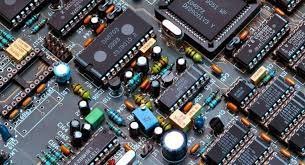Assistant Electronic Mechanic

Introduction: In today’s technologically driven world, electronic devices play an integral role in almost every aspect of our lives. From smartphones to complex industrial machinery, electronic components power a wide array of systems. However, ensuring these devices function optimally requires skilled professionals. Among them, Assistant Electronic Mechanics stand out as vital contributors in maintaining and repairing electronic equipment. In this article, we delve into the intricacies of this profession, exploring the skills required, responsibilities entailed, and the promising career outlook for aspiring individuals.
Understanding the Role: An Assistant Electronic Mechanic works under the supervision of senior technicians or engineers, assisting in the maintenance, repair, and installation of electronic equipment. Their duties vary depending on the industry they work in, ranging from telecommunications and manufacturing to healthcare and aviation. Regardless of the sector, their primary goal is to ensure the smooth operation of electronic systems.
Skills Required: To excel in the role of an Assistant Electronic Mechanic, individuals need a diverse skill set encompassing both technical expertise and practical know-how. Some key skills include:
- Technical Proficiency: A solid understanding of electronic circuits, components, and systems is essential. Proficiency in reading schematics, diagnosing faults, and troubleshooting issues is crucial for success in this role.
- Hands-on Experience: Practical experience in handling electronic equipment and tools is invaluable. Familiarity with soldering, wiring, and using diagnostic instruments such as multimeters and oscilloscopes is necessary for carrying out repairs and maintenance tasks.
- Problem-solving Abilities: Assistant Electronic Mechanics often encounter complex technical issues that require analytical thinking and problem-solving skills to resolve efficiently. The ability to think critically and troubleshoot effectively is essential in this profession.
- Attention to Detail: Electronics are intricate systems, and even minor errors can have significant consequences. Attention to detail is paramount to ensure accurate diagnosis and meticulous repair work.
- Communication Skills: Effective communication with team members, supervisors, and sometimes clients is vital. Assistant Electronic Mechanics must be able to articulate technical information clearly and concisely, especially when discussing diagnoses, repairs, or maintenance procedures.
Responsibilities: The responsibilities of an Assistant Electronic Mechanic can vary depending on the employer and the specific industry. However, common tasks include:
- Assisting in Equipment Maintenance: This involves conducting routine inspections, performing preventive maintenance tasks, and ensuring electronic systems operate at optimal efficiency.
- Diagnosing and Repairing Faults: Assistant Electronic Mechanics troubleshoot issues, identify faulty components, and carry out repairs to restore functionality. This may involve replacing damaged parts, soldering connections, or reprogramming software.
- Installing and Configuring Equipment: In some cases, Assistant Electronic Mechanics are responsible for installing new electronic equipment and configuring it according to specifications provided by engineers or manufacturers.
- Documenting Work: Accurate record-keeping is essential in this role. Assistant Electronic Mechanics document their work, including repairs undertaken, parts replaced, and maintenance procedures performed, to maintain a comprehensive maintenance history for each piece of equipment.
- Collaborating with Team Members: Assistant Electronic Mechanics often work as part of a team, collaborating with engineers, technicians, and other stakeholders to troubleshoot complex issues and implement solutions.
Career Outlook: The demand for skilled electronic technicians, including Assistant Electronic Mechanics, is expected to remain strong in the coming years. Industries such as telecommunications, manufacturing, healthcare, and renewable energy continue to rely heavily on electronic systems, driving the need for qualified professionals to maintain and repair them.

Moreover, advancements in technology, such as the Internet of Things (IoT), automation, and artificial intelligence, are creating new opportunities for electronic technicians. As more devices become interconnected and sophisticated, the skills of Assistant Electronic Mechanics will be in high demand to ensure the seamless integration and functioning of these systems.
Additionally, as older generations of electronic equipment become obsolete, there will be a growing need for technicians capable of upgrading and retrofitting existing systems with newer technologies. This presents opportunities for career advancement and specialization within the field.
Conclusion: Assistant Electronic Mechanics play a vital role in ensuring the smooth operation of electronic equipment across various industries. With the right combination of technical expertise, practical skills, and a commitment to excellence, individuals can embark on a rewarding career in this dynamic and rapidly evolving field. As technology continues to advance, the demand for skilled electronic technicians is expected to grow, offering promising prospects for those aspiring to pursue a career in this field.
